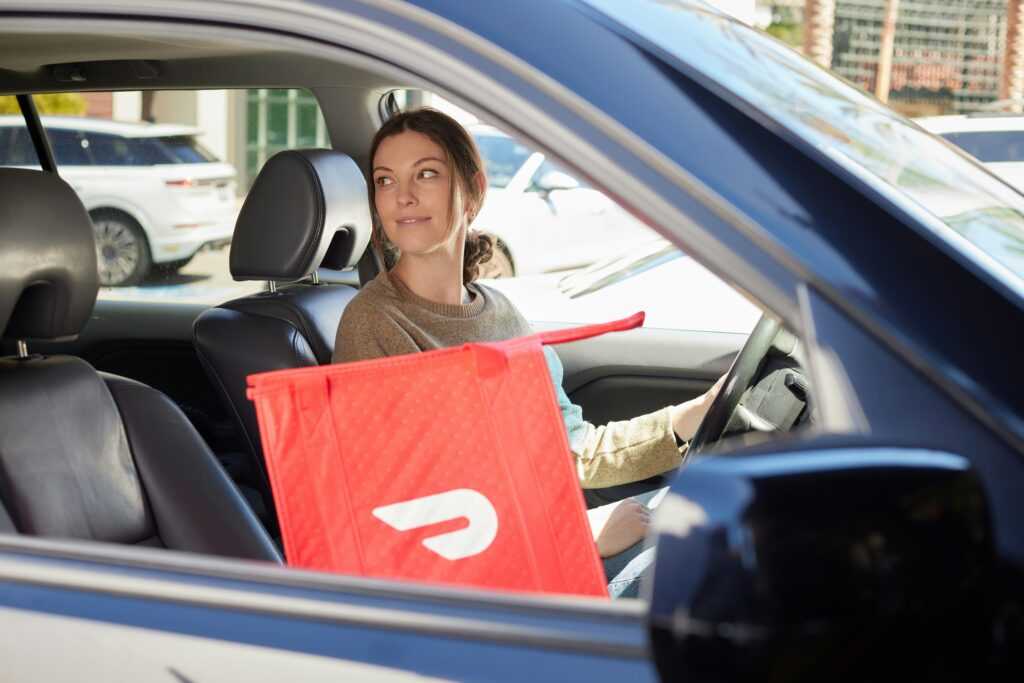New Apps Revolutionizing Car Rentals
Several apps have emerged as game-changers in car rentals. These apps streamline booking, pick-up, and return processes.
Turo
Turo allows users to rent cars directly from owners. This peer-to-peer model features a wide range of vehicles. Booking is instant, and communication occurs within the app. Turo’s insurance coverage options ensure a secure rental experience.
Getaround
Getaround offers contactless rentals with a focus on urban mobility. The app uses digital keys to unlock cars, eliminating the need for physical key exchanges. Vehicles can be rented by the hour, which is ideal for short trips in the city.
Zipcar
Zipcar specializes in offering cars for short-term use, with hourly and daily rates. Members can find and reserve vehicles through the app. Fuel, insurance, and maintenance are included, making it convenient for quick errands or day trips.
Enterprise CarShare
Enterprise CarShare focuses on providing cars for both individuals and businesses. Members can access vehicles parked at convenient locations. The app helps manage reservations and includes insurance, making it easy for corporate usage.
Car2Go
Car2Go provides one-way rentals and free-floating car fleets. Users can pick up and drop off vehicles at different locations within a specified area. The app includes fuel, insurance, and parking, suitable for flexible travel needs.
These apps have transformed the car rental landscape by enhancing convenience and efficiency.
Key Features of Top Car Rental Apps

Top car rental apps have several key features that make renting cars easier and faster. Here’s a look at some of these features.
User-Friendly Interfaces
All top car rental apps have user-friendly interfaces. They ensure smooth navigation with intuitive designs. Clear icons, simple menus, and concise instructions make it easy to search for and book cars. For instance, Turo’s app uses large images and clear descriptions, making it simple to find the right car. Getaround’s app allows quick access to all key functionalities from the main screen, enhancing user experience.
Real-Time Availability and Booking
Instant insight into car availability sets these apps apart. Real-time booking ensures users don’t face last-minute disappointments. Turo provides live data on car availability, ensuring users book cars that are ready to go. Zipcar shows real-time car locations, allowing users to pick the nearest available vehicle quickly. Enterprise CarShare updates its availability status constantly, reducing booking errors and wait times.
Flexible Payment Options
Top car rental apps offer flexible payment options, accommodating various user needs. Users can choose to pay by the hour, day, or week, depending on the rental duration. Getaround supports hourly billing, perfect for short trips, while Turo offers daily and weekly rates for longer use. Zipcar includes fuel and maintenance in its pricing, simplifying the payment process. Enterprise CarShare provides multiple billing options for individuals and businesses, catering to diverse rental requirements.
Analysis of Leading Car Rental Apps
New car rental apps have significantly revolutionized the industry by offering a more convenient and faster way to rent vehicles. I’ll analyze the features, pros, and cons of three leading car rental apps.
App A: Features, Pros, and Cons
App A streamlines the car rental process with several user-centric features.
Features:
- Instant Bookings: Allows users to book cars immediately without lengthy verification.
- Contactless Rentals: Users can access cars using digital keys, eliminating physical key exchanges.
- User Profile Sync: Syncs user preferences for a personalized experience across devices.
Pros:
- Convenience: Offers a hassle-free booking process, saving time.
- Personalization: Adjusts to user preferences, enhancing the rental experience.
- Security: Secure digital key mechanism reduces the risk of lost keys.
Cons:
- Availability: Limited to specific urban areas, restricting broader usability.
- Pricing: Higher rental rates compared to traditional services due to advanced features.
App B: Features, Pros, and Cons
App B stands out for catering to both short-term and long-term rental needs with flexible pricing models.
Features:
- Diverse Fleet Options: Offers various vehicle types from economy to luxury.
- Flexible Payment Plans: Users can choose hourly, daily, or weekly payment options.
- Real-Time Vehicle Tracking: Monitors car location for security and convenience.
Pros:
- Variety: Extensive vehicle options to suit diverse preferences.
- Cost Management: Flexible payment plans help users manage costs effectively.
- Safety: Real-time tracking ensures the car’s location is always known.
Cons:
- App Performance: Occasional bugs and crashes reported by users.
- Customer Support: Slow response times impacting overall user experience.
App C: Features, Pros, and Cons
App C focuses on seamless integration with other travel services, making it ideal for frequent travelers.
Features:
- Travel Integration: Syncs with airlines and hotels for a unified travel experience.
- Advanced Search Filters: Allows users to search cars by specific criteria like fuel type and seating capacity.
- 24/7 Support: Offers round-the-clock customer service for any issues.
- Optimization: Travel integration provides a streamlined travel itinerary.
- Customization: Advanced filters ensure users find the exact car they need.
- Accessibility: 24/7 support ensures assistance is always available when needed.
- Complexity: Extensive features can overwhelm first-time users.
- Compatibility: Some integration features not available on all devices.
How These Apps Improve User Experience
New car rental apps are revolutionizing user experiences by offering unmatched convenience and speed along with improved customer support.
Convenience and Speed
Car rental apps now provide features that streamline the rental process, enhancing both convenience and speed. With instant bookings and real-time availability, users can find and secure a vehicle in minutes, avoiding the lengthy waits typically associated with traditional rentals. Apps like Turo and Getaround enable users to book cars directly from their smartphones, offering digital keys for immediate vehicle access. This contactless process reduces time spent at pick-up locations. For instance, Zipcar allows bookings by the hour or day directly from the app, and Car2Go provides one-way rentals with free-floating fleets, enabling flexible pick-up and drop-off, thus saving time and effort.
Enhanced Customer Support
Reliable and responsive customer support significantly enhances user experience. Many apps now offer 24/7 customer support, ensuring users can resolve issues any time of day. For example, App C integrates advanced support features, including live chat and responsive help centers, addressing questions or concerns quickly. Additionally, apps like Enterprise CarShare include comprehensive insurance options, giving users peace of mind. Flexible payment plans, as seen in App B, cater to diverse financial needs, while personalized user profiles sync across devices for a seamless experience. Improved app performance and dedicated customer service teams ensure that users face fewer disruptions, making these apps a favored choice for many.
Potential Drawbacks and Challenges
New car rental apps bring significant improvements, yet some drawbacks and challenges persist. One of the main issues is unreliable app performance, which can cause frustration for users. For instance, app crashes or slow loading times can impede the rental process, particularly during peak hours.
Another challenge is limited coverage areas. Many apps, like Turo and Getaround, concentrate on specific cities or regions, restricting availability for users in less populated areas. This limitation can be inconvenient for those needing rentals in remote locations.
High rental costs also pose a challenge. While apps like Zipcar provide convenience and flexibility, their hourly and daily rates can be higher compared to traditional rental services. This cost factor might deter budget-conscious renters from using these services.
Customer support can vary across different apps. Some users report difficulties in reaching support teams promptly, which can be problematic in urgent situations. Inconsistent quality of support can impact user satisfaction negatively.
Insurance complexities often arise with peer-to-peer rental models. Users renting cars through Turo, for example, may find insurance terms confusing, leading to potential disputes or misunderstandings. Clear and comprehensive insurance options are essential to ensure user confidence.
Data privacy concerns are growing as well. Car rental apps collect personal and financial information, raising fears about data security. Ensuring robust security measures and transparent data policies is crucial to user trust.
While new car rental apps improve convenience and efficiency, they also face notable challenges related to app performance, coverage areas, rental costs, customer support, insurance complexities, and data privacy. Addressing these issues is vital for the continued evolution and success of these platforms.
Future Trends in Car Rental Apps
AI Integration – Artificial Intelligence is set to revolutionize car rental apps by enhancing customer service and personalization. Predictive analytics can analyze user preferences to offer tailored vehicle recommendations. AI chatbots will handle queries round the clock, improving response times and user satisfaction.
Blockchain Technology – Incorporating blockchain can streamline rental agreements and transactions, ensuring security and transparency. It can simplify verification processes, reducing fraud risks. Users can expect quicker, more secure transactions, offering peace of mind.
Autonomous Vehicles – Car rental apps will likely adapt to autonomous vehicle technology as it becomes mainstream. Users could book self-driving cars, experiencing enhanced safety and convenience. This trend aligns with the growing demand for innovative mobility solutions.
Enhanced Connectivity – The Internet of Things (IoT) will improve vehicle connectivity, allowing users to monitor vehicle status in real-time. Features like remote diagnostics can notify users about maintenance needs. This provides a seamless, hassle-free rental experience.
Subscription Models – More car rental apps are expected to introduce subscription-based services. These models offer flexibility and cost savings for frequent renters. Users can access a variety of vehicles without long-term commitments.
Sustainability Focus – Eco-conscious customers will see more green solutions like electric vehicle rentals. Car rental apps might provide carbon footprint tracking, promoting sustainable travel choices. This shift addresses rising environmental concerns.
Big Data Utilization – Advanced data analytics will help optimize fleet management, reducing downtime and improving availability. Car rental companies can utilize customer data to enhance service offerings, meeting specific needs more effectively.
Augmented Reality – AR can elevate the user experience by offering virtual tours of rental cars. Users can inspect vehicles visually before booking, making informed decisions. This feature enhances transparency and trust.
Personalized Marketing – Car rental apps will employ machine learning to craft personalized promotions. Users receive tailored offers based on rental history and preferences. This strategy boosts engagement and retention rates.
Multimodal Integration – Future apps may offer integrated booking for various transport modes. Users can seamlessly switch between car rentals, public transport, and bike-sharing. This integrated approach addresses diverse travel needs.
These trends indicate a promising future for car rental apps, focusing on smart technology and user-centric innovations.




